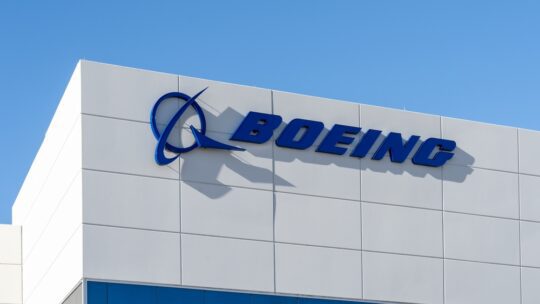
Boeing is replacing its current CEO amidst apparent systemic issues with its manufacturing process and a steadily declining stock price. The job of the next CEO will be to steer the badly off-course company and rebuild trust on multiple fronts, with employees, shareholders and an increasingly wary global flying public.
A weaker company than Boeing may have folded under this kind of adversity. From a mid-flight blown out door to ugly Congressional hearings, Boeing’s reputation as the world leader in commercial aerospace technology has been severely tarnished over the last few months.
Luckily for them, Boeing is in many ways too big to fail. It’s the U.S.’s only major commercial airplane manufacturer, and it plays a vital role in the American defense ecosystem. But with every disaster, the company risks losing more and more business; with the slew of issues since 2019, the company has lost nearly 10% of its market value.
Boeing needs to course correct, not only for the vital safety of passengers, but for the confidence of their various stakeholders as well. As companies falter, not only do customers lose confidence, but employees do also—and an employee identity crisis can lead to talent drains and low morale. Shareholders, meanwhile, reevaluate and assess: is investing in this company the right way to spend their money?
Gaining back the trust of Boeing’s shareholders, employees, customers and passengers will require three steps: acknowledgement, remediation and communication—otherwise known as ARC, or creating the ARC of success. So here’s what I’d advise the company’s new CEO to do:
Acknowledge
Addressing these crises head-on starts with acknowledgment—and unflinching and comprehensive honesty. It demands a public reckoning with past mistakes—an open admission of where and how the company faltered.
The new CEO has to almost be a detective, investigating every element of the company’s structures and processes. They have to be fact finders for the concerned public and investors, acting as a proxy, and transparently reporting out both their plans for investigation and the results of what they uncover—warts and all.
There’s little doubt that exposing the dirty underside of a company is inevitably going to hurt the stock price, at least at first. The best intentioned apologies mean little in this situation, but companies do tend to get at least some credit for honesty.
It’s better that a company comes out with everything at once—allowing the bad news to hit and be absorbed, rather than allowing a slow trickle of bad news to swarm the company’s narrative over an extended period. Accountability around what’s at play and where fault lies is key to creating greater trust.
A major food manufacturer, for instance, saw a massive drop in sales after they announced a listeria outbreak in their product back in 2009. But through their transparency (and some incredible brand loyalty) they were able to come back strong.
Remediate
When up against a crisis, stakeholders need more than just acknowledgement of a problem: they need action that will back it up.
For the next CEO of Boeing, once their initial investigation is done, the onus will be on them to figure out what changes can be made and implemented in order to resolve whatever issues in the manufacturing process were uncovered.
In my professional experience, I’ve seen investigations turn up incidents of fraud or corporate sabotage; those incidents are easy to address and correct. For Boeing, the answer is less likely to be so straightforward.
Over the last few years, Boeing has had an issue with talent retention, hemorrhaging engineers during the pandemic and cutting positions to save on costs. It’s likely that at least some of the problems we’re seeing with Boeing's output are a result of weakened corporate culture and structural issues in the corporate hierarchy of the company as well as unforeseen challenges in its prior operating strategy.
The CEO then has to appoint—or become—a chief restructuring officer, who can create value stream maps for every function of a company, demonstrating how it gets to a finished product. Each stage of the development project needs a value, so that the company can appropriately remediate any issues.
Communicate
Finally, the next CEO of Boeing needs to market their changes; acknowledging what’s been done, and reporting it out in a way that’s simple and understandable. For a company like Boeing that’s in a major trust deficit, they’ll want anything they’ve done to be independently verifiable, so that individuals and shareholders can see for themselves what’s been done.
Any changes that are made should go to employees first. Though many hate the idea today that a company is like a family, in this case, employees should be treated as such. Employees should be the first to hear any information about the future of the company before it goes out to shareholders and the public so that they know what’s coming, and feel accounted for in the change.
Addressing the general public is more obvious: ad campaigns that can convince flyers that the company has made changes will be key—similar to how BP was able to rehabilitate their image post oil-spill.
It won’t be simple and it won’t be pleasant, but it’s a necessary change that Boeing needs to make to regain trust. Transparency and clarity are key right now, and the company’s next CEO will be the one to do it.
Richard Holt is a Managing Director with Alvarez & Marsal and US Corporate Transformation Leader.
